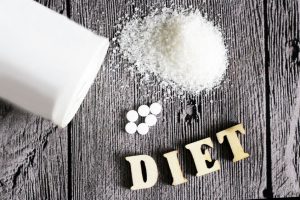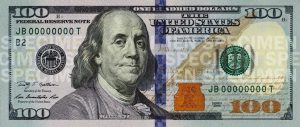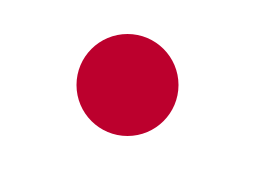
The diet sweetener industry is a cash cow, no doubt, but the money has changed hands numerous times, and spreading the wealth started early in the game.
Aspartame is a sweetener with many names, and each name represents a profit deal:
- Generic Aspartame
- NutraSweet®
- Equal®
- Advantame®
- Neotame®
- AminoSweet®
- Canderel®
- Pal Sweet Diet®
Aspartame has been owned by many companies, and with each company comes a profit deal:

- G.D. Searle Pharmaceuticals
- Monsanto Chemical Company
- The NutraSweet Company
- J.W. Childs Equity Partners II, LP
- Ajinomoto Company, Inc
- Ajinomoto Switzerland A.G.
- Ajinomoto Euro-Aspartame S.A.
- Yokkaichi
- Gravelines
In 1985 after searching nearly a year for a suitable buyer, G. D. Searle & Co., the original inventor of the sugar substitute aspartame, agreed to merge with chemical producer Monsanto Co. in a deal worth $2.7 billion cash.
Monsanto then created a separate subsidiary for its new aspartame business, The NutraSweet Company. Monsanto also owned the patented rights to saccharin at this time.
Interestingly, the companies had suspended their stock trading before the July 1985 announcement that Monsanto would acquire Searle for $65 a share in cash. Searle then became a wholly owned subsidiary of Monsanto, which had pursued the Skokie, Ill.-based pharmaceutical company since September 1984.
In 1992, Monsanto’s US patent on aspartame expired, and The NutraSweet Company lost their 20-year monopoly on aspartame. Sales declined as competitors came onto the diet sweetener market, and concerns about aspartame health dangers were spreading worldwide.
In December 1999, Monsanto and Pharmacia & Upjohn announced plans to merge their two companies. Monsanto and Pharmacia & Upjohn completed their merger on March 31, 2000, naming the new company the Pharmacia Corporation.
The agricultural operations within Pharmacia retained the Monsanto name – this was the company responsible for Roundup, the Bovine Growth Hormone, multifarious seed companies, saccharin and NutraSweet.
When Splenda® came on the US market in 2000, Monsanto sold its remaining sweetener business to J.W. Childs Equity Partners II, LP., which included the NutraSweet brand sweetener, for $440 million.

Aspartame And Japan
After the 2000 sale, J.W. Childs competed for market share with other generic aspartame manufacturers, including Japan’s Ajinomoto Company, Inc.
Ajinomoto’s international production and marketing network for aspartame increased in May 2000 when two EU joint ventures became fully owned subsidiaries of Ajinomoto under the names Ajinomoto Switzerland A.G. and Ajinomoto Euro-Aspartame S.A.
On December 6, 2004, Ajinomoto announced that it was investing JPY 6 billion ($58 million US) to expand its aspartame manufacturing plants in Yokkaichi, Japan and Gravelines, France.
Expansion began at these two locations in early 2005 and was completed by March 2006. Ajinomoto projected that it would remain the market leader in aspartame manufacturing, with a target goal of supplying more than half of the global aspartame market. They did not meet their expectations, however, and by 2009, Ajinomoto was researching new ways to improve aspartame’s market sales.
What did they do?
They rebranded aspartame as the Japanese “Pal Sweet Diet®” as “AminoSweet®”, and replicated the 1982 American marketing campaign claiming that aspartame was all natural.
After all, Ajinomoto invested over $125 million US into aspartame, and they needed AminoSweet to successfully resurge.
Do you think they’ve gotten a return on their investment?
As the many sweetener companies try to retain their aspartame profits, expect more name changes.
Read Sweet Poison for the full timeline and details about aspartame dangers. It’s on kindle, too.
___________________________
If you want to learn more about the diet sweeteners and disease prevention, contact me at janethull.com. Remember that you are never alone when you are looking for good health!
Gain access to all of my online programs, ongoing support, monthly Q&A, and more. I look forward to supporting you on your journey to alternative health and wellness.
_____________
Disclaimer: This article is for informational purposes only, and is educational in nature. The FDA may not have evaluated some of the statements. This article is not intended to diagnose, treat, cure, or prevent any disease. Please discuss with your own, qualified health care provider before adding supplements or making any changes to your dietary program.
Before taking vitamins, consult your doctor; pre-existing medical conditions or medications you are taking can affect how your body responds to multivitamins.
You have our permission to reprint this article if you attribute us with a live back-link to this article and the youtube links. https://janethull.com/